Pandemic Prompts New Partnerships and Increases Access to Local Foods
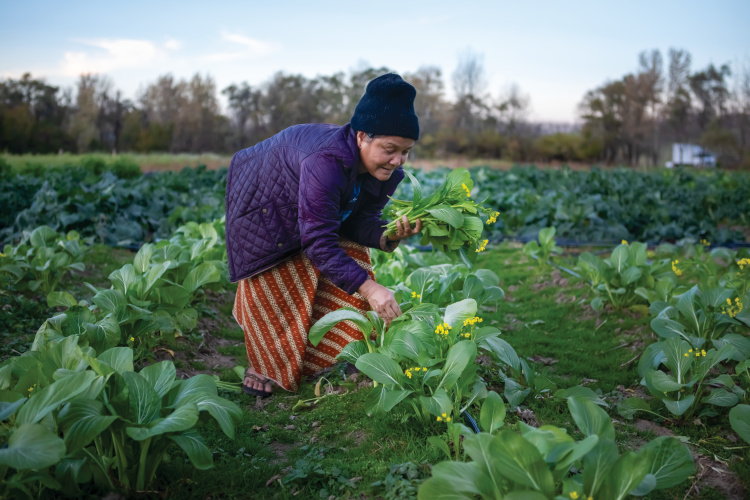
Photo credit: Nathan Lambrecht
Healthy eating has been second nature to Jain Young ever since her mom started a natural food buying club in Fort Wayne in the 1970s. Once a month, members pooled their orders and sent them to Michigan, where someone from the group picked them up. Several years later, her mother opened a health food market. “I have believed all along that the work that I’m doing now is the continuation of my family legacy,” says Young, now CFO of Plowshares Cooperative Food Hub, a local distribution co-op.
A few years ago, Young, who worked at her family’s store and at one time owned her own salsa-making business, was serving as administrator at the nonprofit sustainability group Heartland Communities when she got the idea to launch the for-profit Plowshares. “I was very intentional about doing a project in the local food system,” she says. “They’ve commissioned studies at the state level that showed the average meal in Indiana travels 1,500 miles. And here we are with some of the best farmland and largest acreage of farmland and production and we’re not even feeding ourselves. If I don’t do it, who’s going to?”
The missing piece, Young knew, was distribution infrastructure – a way to get local food from the farm to the consumer, grocery store or restaurant.
See more: Thanks to These Farmers, Hoosiers Can Enjoy Fresh, Local Shrimp
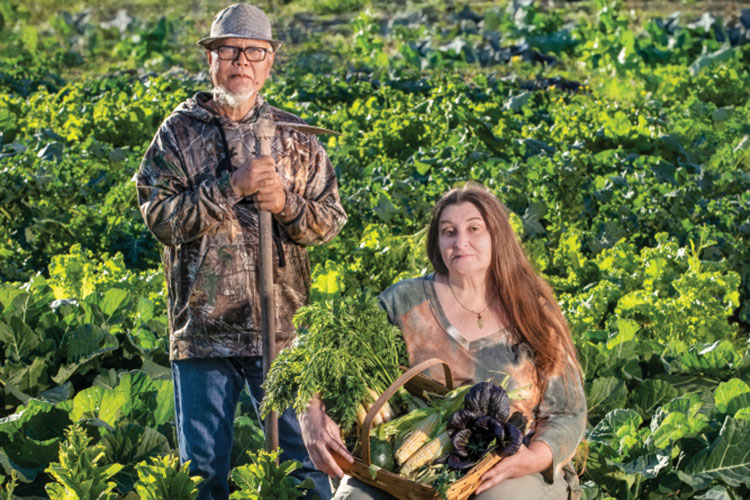
Plowshares Cooperative Food Hub founder Jain Young, right, formed a farming partnership with the large Burmese refugee population in Fort Wayne, including Soe Theim, left, and Hla Kyi, above photograph, to grow produce for the co-op on 9 acres in New Haven. Photo credit: Nathan Lambrecht
Plowing the Way
So in 2019, she and her son, Rowan – now CEO and the company’s main community networker – started their own one-stop cooperative, designed to spur economic development by creating jobs and access to locally grown products. Plowshares began with a modified Community Supported Agriculture model, in which members received a weekly box of harvested seasonable vegetables and other products. Instead of relying on the usual annual subscription fees, Young came up with the idea for “harvest baskets” that residents could order online from week to week without an upfront financial commitment. The “locally grown” requirement broadened to include Michigan peaches, sweet corn from Kentucky and other produce from surrounding states. Plowshares also offered a catalog for customers wanting to order produce from particular farmers.
“And then,” Young says, “COVID-19 happened, and the market just went so crazy.”
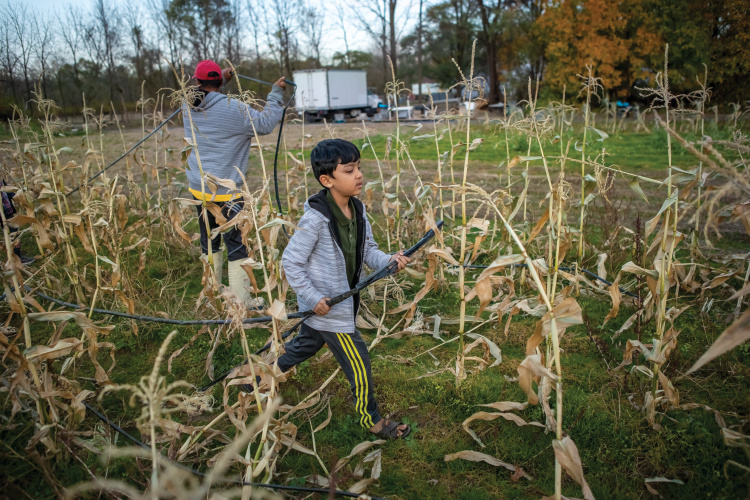
Ha Run and his son, Sohi, pull up irrigation lines to be used for next year. Photo credit: Nathan Lambrecht
When One Door Closes
The pandemic disrupted the entire supply chain, leaving store shelves empty. Farmers sold out quickly and were no longer able to guarantee products for Plowshares.
Through a local labor organization called The Workers’ Project, Young was aware of the city’s high population of Burmese refugee workers – the largest in the world outside of Burma, now called Myanmar – many of whom had farmed before fleeing their war-torn homeland. “There are language barriers, so opportunities are pretty slim for these folks,” Young says. “The climate is different. The business laws are different.”
One day, while attending a “workers circle” meeting, Young proposed a farming partnership: The Burmese refugees (a dozen or so) would cultivate 9 acres of unused land in New Haven and sell directly to customers. Once the coronavirus shutdown lifted, they would provide produce for the co-op.
“They huddled together and talked to each other and came back and said, ‘Yes, we want nothing more than to be farmers,’” Young recalls.
A three-year grant from the U.S. Department of Health & Human Services funded the incubator farm, with Heartland running it and Plowshares paying the workers. Each farmer was assigned a half-acre to tend.
Preparing the property, from installing an irrigation system and electricity to adding solar panels to run the new well, took a while – and the workers were worried they were starting too late. But the first crop of collard greens, kale, Daikon radishes and “sour leaf” (a kind of hibiscus used in tea-making) sold well. “The satisfaction of seeing these folks grow their own stuff and put every dime of their labor and their effort in their own pockets – that was golden,” Young says. “I didn’t have it in me to ask them for one dime of that money.”
See more: Maple Leaf Farms Dishes on Duck
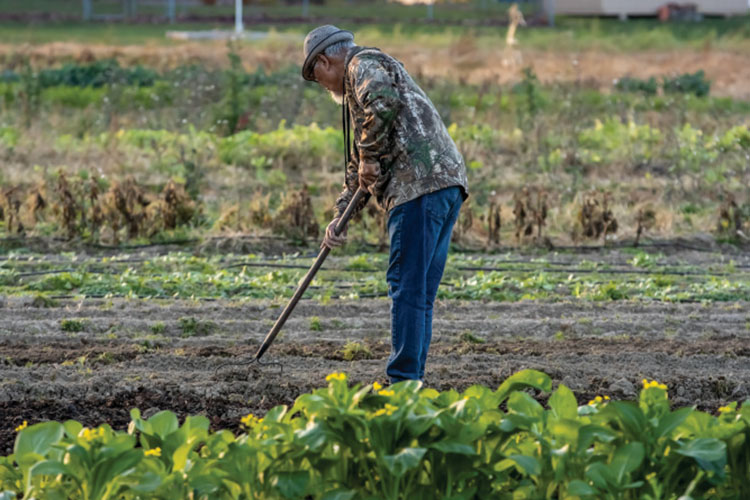
Soe Theim tends to his half-acre plot at the Plowshares farm in New Haven. Photo credit: Nathan Lambrecht
New Growth
This year, Young expects to be back on track with online food hub orders and pop-up markets. A new federal program for low-income Supplemental Nutrition Assistance Program recipients doubles their purchasing dollars if they buy fresh fruits and vegetables through partnerships with sources like Plowshares.
About 30 farmers, including the refugees, now sell wares ranging from poultry to mushrooms through Plowshares.
“The big-picture goal of this whole project is to create a local economy where we all become more prosperous and healthy, with fresh vegetables that aren’t traveling 1,500 miles. They taste better, they’re more nutritious and it’s better for everybody.” Young says.





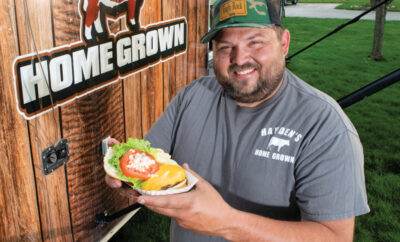

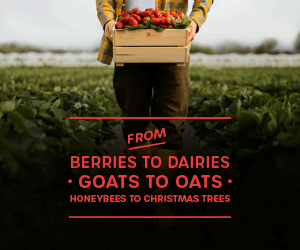
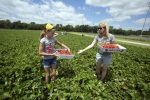
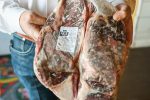
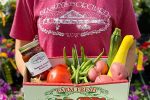


 My Indiana Home is produced for Indiana Farm Bureau members. Our mission is to connect you with the food you eat, the Indiana farmers who grow it and a rural lifestyle that is uniquely Hoosier.
My Indiana Home is produced for Indiana Farm Bureau members. Our mission is to connect you with the food you eat, the Indiana farmers who grow it and a rural lifestyle that is uniquely Hoosier.
Jain Young
August 19, 2021 at 11:28 am
Thank you Nancy Henderson and Nathan Lambrecht for a wonderful article and photographs. And thank you to Indiana Farm Bureau and the publishers of My Indiana Home for the wonderful opportunity to be seen.